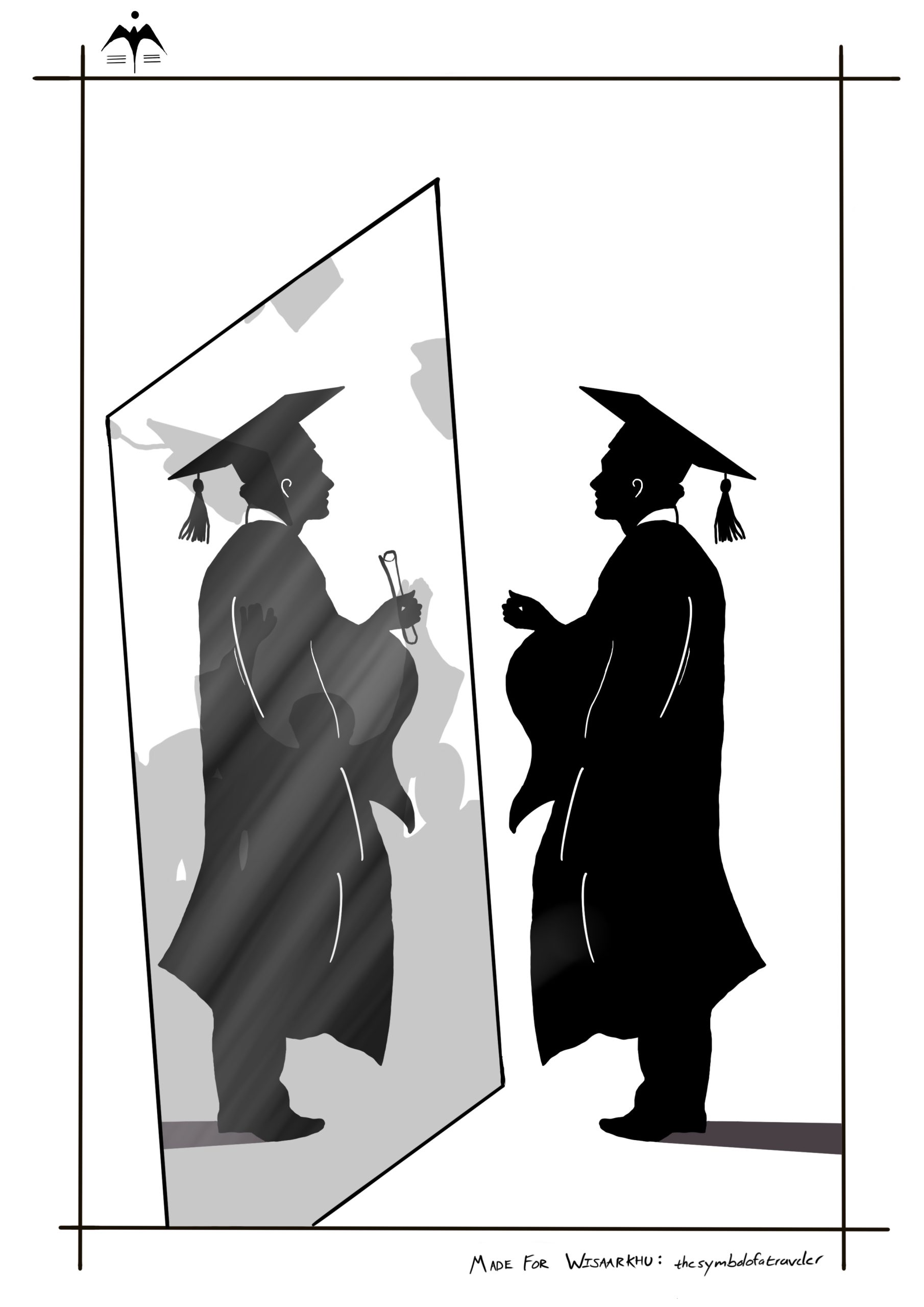Shepherd Mpofu recounts his experiences during his PhD journey and poses important questions and dilemmas involved in supervising a varied bunch of students. While it is important to have certain essential training, he warns us against spoon feeding and taking a “one size fits all” attitude towards teaching and supervision. As Oprah Winfrey once said “A mentor is someone who allows you to see the hope inside yourself”.
Introduction
Do PhD supervisors learn solely from their former supervisors how to supervise their students or do they also have to learn supervision in other ways? Almost every other supervisor grapples with this question as they do not know the best way possible. Supervisory courses for PhD holders working in academic settings therefore become important. In this essay, I would like to reflect on my journey as a PhD candidate and the progression from there as a PhD supervisor. My focus is on how my experiences and my training as a supervisor are currently shaping the way I would like to supervise. The PhD journey is said to be a lonely journey especially if one is not doing it full time and at a residential university. I did my PhD at the University of the Witwatersrand, a top-ranking residential university in South Africa. While doing my PhD the Faculty of Humanities created a space where PhD scholars worked from. We called it “the carrels”. There were around 20 or so PhD candidates in that space working all day and sometimes, through arrangements, throughout the night. I remember a Nigerian candidate who did his PhD in two years and where he sat the carpet was worn out. Not that he fidgeted a lot, but this showed how often he was on his desk and the dedication and the number of sleepless nights that were put into the research. Of course, for many international students, there is a push to complete their studies in record time given visa, funding, and other issues that would likely work against them. I had similar challenges, and I felt I lived on the margins of society by virtue of being an international student. I was meant to be funded by my former employer, but they never came to the party. I was abandoned and had to find ways of doing student jobs on campus for my sustenance. This of course pushed me to try and complete my PhD on time and move on with my life as being a student was precarious. In this essay, I therefore reflect on my journey as a PhD scholar and share my plans for supervising my PhD students at my current place of employment.
My journey
My supervisor had several students that she supervised and in hindsight, we never had time to share our experiences about her. We never had those gossip moments. But we were supervised well, in my estimation and it was usually one-to-one where the supervisor met you after reading your work, gave you comments on your chapter ,and sometimes an extra written page or so. In addition to these, we met, and she would go over the comments and when I made the corrections, I had a pretty much clearer picture as to what to do. I found this style helpful and after my PhD here I am supervising about 7 PhDs based in different cities in South Africa, Zimbabwe, and Ethiopia. One thing that has struck me is that I cannot have seven conversations about how to write a literature review, theory, or methodology section and I must depart from the way my supervisor supervised me. I am charting my own path. A new path might be exciting but it also causes anxiety. Before I proceed to the plans that I have, it is important to address my experiences of the loneliness aspect of the PhD journey and share how I envisage to work around this with my students. Already, I have had a meeting (in June) with my MA students, and one has not had a research topic finalized since March. In the meeting, she said that she was too busy with work and asked her peers to not leave her behind. How then do you implement a cohort supervision model and yet don’t hold back the progressing students and not leave the slow ones behind?
When we were at the carrels, we had a culture of having lunch together as PhDs and sometimes with MA candidates. There were few brave MA candidates who hung around PhD candidates. But there was not a culture of superiority or inferiority. During our lunches, people would talk about many different subjects ranging from global, continental, and home politics to academic issues. It created a well-rounded space for and of belonging. Those who had been doing their PhDs for a long would guide those who were starting up, especially with the proposal stage and comments on the first chapters. This extra guidance assisted the new candidates a great deal. I remember when I started writing articles before completing my PhD, I had fellow PhD candidates, some of whom had submitted, read, and commented on my work. The faculty also had a mentorship program, but this worked largely for mentoring MA candidates, PhD candidates were contracted to mentor MA candidates. This in a way worked as a two-way street whereby sharing knowledge and ‘supervising’ the PhD candidate gained knowledge and experience in supervision while the MA candidate’s work progressed. Thus, the community that was created within that space helped us in unimaginable ways and our PhD journeys were not entirely lonely. Some friendships that started at the carrels still stand today. I cannot claim to have struggled in terms of finding my way through the PhD especially after the proposal was accepted by the Faculty. I may have struggled through the proposal stage. And I find proposal stages in most South African universities cumbersome and unnecessary. Things change. I can propose to go a certain route and end up going another due to circumstances and the approach that makes the proposal the ultimate road map is unnecessary and untrue in my thinking.
The PhD community and workshops
Besides our communal engagements at the carrels, there were faculty-run workshops on research. Different presenters were brought in and addressed such issues as How to write an abstract; How to write an introduction; How to do literature reviews; Methodology; How to gather data and How to analyse data. Besides these, there were seminars where students presented and others where experts came through. This initiated most postgraduate students into an intellectual culture that sustained them. In the last five years, I can safely say I have not attended or seen so much intellectual activity as I did in one year at Wits. In some cases, they engage with this rich culture that helps them with their academic and intellectual growth, and in some cases, these are non-existent and curtail their intellectual growth. My current place of work, the University of South Africa, is an ODeL university and students do not have a physical presence on campus.
By way of conclusion
I am implementing a cohort model of supervision online for my PhD candidates. I envisage that it is going to be an interesting experiment and am anxious about how to balance between those who progress faster and those who are slower in their pace. I am adopting this model so that I can expose students to networks of established researchers and give them an opportunity to peer review each other’s work. Having meetings with them as a group creates a sense of community where they will be able to work and support each other. Lastly, it is a training space where they would learn to share their ongoing research and critique each other in a conference/seminar-like setting affords them an opportunity to see their work from the perspective of their peers It is important that students should be able to engage with each other’s work and not work in silos. The sense of community and intellectual growth brought about by this supervisory system cannot be understated. But again, we should be wary of the fact that students do not progress at the same pace to an extent it becomes burdensome to others to be slowed down by those who are falling behind

Prof. Shepherd Mpofu
Associate Professor, Dept. of Communication Science at University of South Africa


